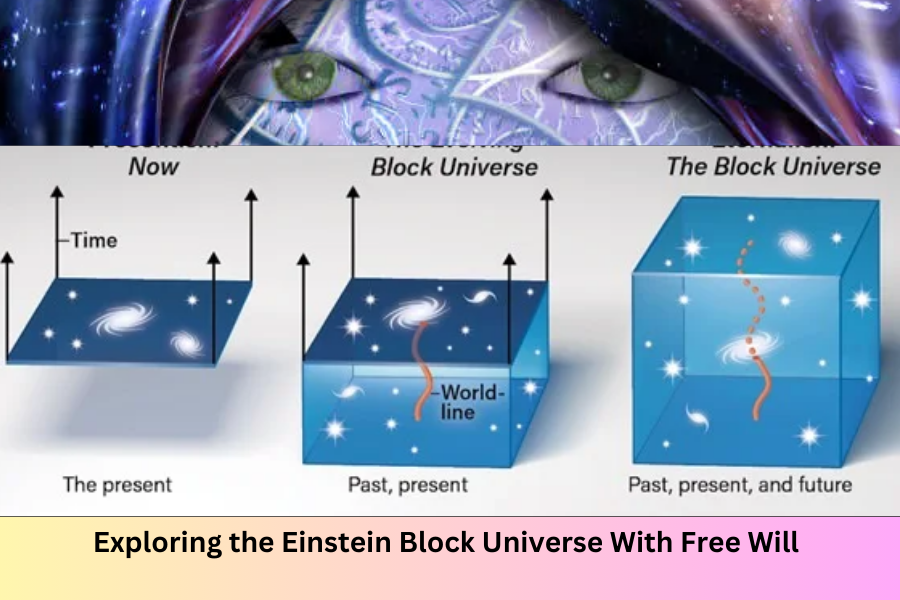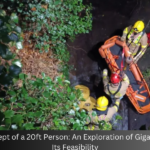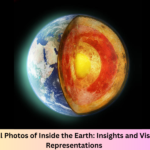Introduction
Einstein’s block universe is a concept that derives from his theory of relativity, presenting a radical view of time and existence. This model, known as “Einstein Block Universe With Free Will,” envisions the past, present, and future as equally real, existing simultaneously in a four-dimensional spacetime. While the idea has profound implications for understanding reality, it also raises critical questions about free will and human agency, challenging how we perceive choice and causation.
Understanding the Block Universe
In Einstein’s framework, spacetime is not just a backdrop but an active participant in the structure of the universe. The block universe model suggests that all events—past, present, and future—are permanently fixed within this spacetime continuum. Unlike the everyday experience of time, where moments flow sequentially, the block universe portrays time as a static dimension akin to space. Just as all points on a map exist simultaneously, so do all moments in time.
Special relativity supports this view. Observers in relative motion perceive different slices of spacetime as their “now.” For instance, an event that one observer considers to be in the future might already be in the past for another. This relativity of simultaneity supports the idea that time is not a linear progression but a coordinate in a vast four-dimensional structure
Wiki
| Concept | Description |
| Einstein Block Universe | A model based on Einstein’s theory of relativity, where time is treated as a static dimension, and past, present, and future events exist simultaneously within spacetime. |
| Relativity of Simultaneity | A concept from special relativity suggesting that different observers perceive different “nows,” supporting the idea of a fixed block universe. |
| Determinism | The view that all events, including human actions, are determined by prior causes and natural laws, suggesting that free will may be an illusion. |
| Compatibilism | A perspective that reconciles free will with determinism, suggesting that free will exists when people can act according to their desires and intentions, even in a determined system. |
| Presentism | A philosophical theory that holds only the present moment is real, and the future and past do not exist, opposing the block universe model. |
| Quantum Mechanics | A branch of physics that introduces probabilistic behavior, challenging the deterministic nature of the block universe and potentially allowing room for free will. |
| Arrow of Time | The concept that time flows in one direction, often associated with increasing entropy, and experiences of past, present, and future in human perception. |
Determinism in the Block Universe
The deterministic nature of the Einstein Block Universe With Free Will suggests that every event is predetermined. The past and future are as immutable as physical distances between two locations. This perspective implies that human actions, decisions, and thoughts are not freely chosen but predetermined within the framework of spacetime.
From a deterministic standpoint, free will is an illusion. If every choice and outcome is encoded in the fabric of spacetime, the sense of agency experienced by individuals might merely reflect their limited perception of the broader reality. This interpretation aligns with the mechanistic view of the universe, where natural laws govern all phenomena
Compatibilist Views
Not all interpretations of the block universe negate free will. Compatibilists argue that determinism and free will can coexist. Under this view, free will is redefined as the ability to act according to one’s desires and intentions, even if those actions are predetermined. This approach maintains the meaningfulness of human agency and moral responsibility, emphasizing the internal processes behind decision-making rather than the external structure of spacetime.
The compatibilist perspective bridges the gap between deterministic physics and everyday experiences of choice and accountability. It suggests that understanding the mechanics of the universe does not diminish the value of individual actions
Free Will and Presentism
Critics of the block universe propose alternative models of time to preserve free will. Presentism, for instance, argues that only the present moment is real. In this view, the future is open and undecided, aligning with the intuitive sense of making choices and influencing outcomes. This dynamic model of time rejects the notion that all events are fixed, offering a framework where free will can operate without contradiction
Presentism finds support in philosophical debates but struggles to reconcile with Einstein’s theory of relativity. The relativity of simultaneity undermines the concept of an absolute present, making it challenging to integrate presentism with modern physics.
Physics and the Philosophy of Time
Physics, particularly through relativity and quantum mechanics, provides a foundation for understanding time but leaves room for philosophical interpretation. Einstein’s equations describe a block universe, but they do not necessitate determinism. The deterministic interpretation arises from additional assumptions about the nature of reality.
Quantum mechanics, for example, introduces probabilistic elements that contrast with the deterministic nature of the block universe. Some physicists and philosophers argue that quantum uncertainty might offer a basis for free will, suggesting that not all events are predetermined. This perspective highlights the interplay between physics and metaphysics, where scientific theories shape but do not fully dictate our understanding of concepts like time and agency
The Human Experience of Time
Despite the scientific rigor of the block universe, human experience paints a different picture. People perceive time as flowing, with a clear distinction between past, present, and future. This dynamic perception drives our sense of free will, responsibility, and causation.
One explanation for this discrepancy lies in the brain’s processing of events. Neuroscientists suggest that the brain constructs the experience of time’s flow by organizing sensory information and memories. This constructed reality aligns with the arrow of time observed in thermodynamics, where entropy increases and irreversible processes shape the unfolding of events.
The arrow of time, while consistent with human experience, does not contradict the block universe. Instead, it provides a localized perspective within a broader, unchanging framework. This duality underscores the complexity of reconciling scientific models with subjective realities
Challenges and Debates
The block universe raises profound questions about causality and choice. If all events are fixed, can individuals truly influence outcomes? Philosophers and scientists continue to debate these issues, exploring the implications for ethics, responsibility, and identity.
Some argue that the block universe diminishes personal significance, reducing individuals to passive participants in a preordained reality. Others see it as an invitation to explore the deeper structure of existence, where understanding the laws of nature enhances rather than diminishes the value of human experience
Reconciling Science and Philosophy
Bridging the gap between the block universe and free will requires integrating insights from physics, philosophy, and psychology. While the block universe provides a robust model for understanding spacetime, it does not negate the richness of human experience. Philosophers like Henri Bergson and thinkers in the tradition of existentialism emphasize the subjective dimension of time, advocating for perspectives that honor both scientific rigor and lived reality
The debate over Einstein’s block universe and free will is far from settled. It remains a fertile ground for inquiry, where science and philosophy intersect to address some of the most fundamental questions about existence and human agency. As our understanding of the universe evolves, so too will our interpretations of time, choice, and freedom.
Conclusion
The concept of the Einstein Block Universe With Free Will challenges our traditional understanding of time, suggesting that past, present, and future exist simultaneously within the framework of spacetime. While this theory provides a fascinating and mathematically supported model of the universe, it raises profound questions about the nature of free will. If the future is predetermined and every event is encoded within the block, does that leave any room for choice and agency?
Philosophers, scientists, and thinkers have debated these implications for years. Some assert that the block universe renders free will an illusion, while others argue for a more nuanced perspective, such as compatibilism, where free will exists within a deterministic system. The conflict between these views reflects the ongoing struggle to reconcile the subjective experience of time with the objective reality suggested by modern physics.
Ultimately, the question of whether free will can coexist with the block universe may never be fully resolved. However, this inquiry serves as a reminder of the complexity and depth of our existence. Whether time is a flowing river or a fixed block, our understanding of time, causality, and choice remains a key part of the human experience.
FAQs
1. What is the Einstein block universe?
The Einstein block universe is a model based on Einstein’s theory of relativity, where the past, present, and future are all equally real and exist within a four-dimensional spacetime structure. In this view, time is not something that “flows,” but rather a static dimension similar to space, with all events laid out in a fixed block.
2. Does the block universe imply that free will doesn’t exist?
The block universe can suggest that all events, including human actions, are predetermined, leading some to believe that free will is an illusion. However, other perspectives, such as compatibilism, argue that free will can still exist within a deterministic framework. This view emphasizes that humans can act according to their desires and intentions, even if those actions are already encoded in spacetime.
3. How does quantum mechanics relate to the block universe?
Quantum mechanics introduces a degree of probabilistic behavior that contrasts with the deterministic nature of the block universe. While the block universe suggests a fixed timeline, quantum mechanics reveals that at the microscopic level, events can occur unpredictably. This tension between determinism and uncertainty fuels ongoing debates about the nature of time and free will.
4. What is presentism, and how does it differ from the block universe?
Presentism is the belief that only the present moment is real, and both the past and future do not exist. In contrast to the block universe, which holds that all moments in time exist simultaneously, presentism maintains that the future is open and free from determinism. This view supports the idea of free will, as it suggests that future events are not predetermined.
5. Can free will exist in a deterministic universe?
This question lies at the heart of the debate between determinism and free will. Compatibilists argue that free will can exist in a deterministic universe, where humans can still make choices based on their desires and intentions, even if those choices are determined by the laws of physics. However, determinists and some philosophers believe that true free will is incompatible with a fixed timeline.
Explore the latest news and updates on Play Hop




